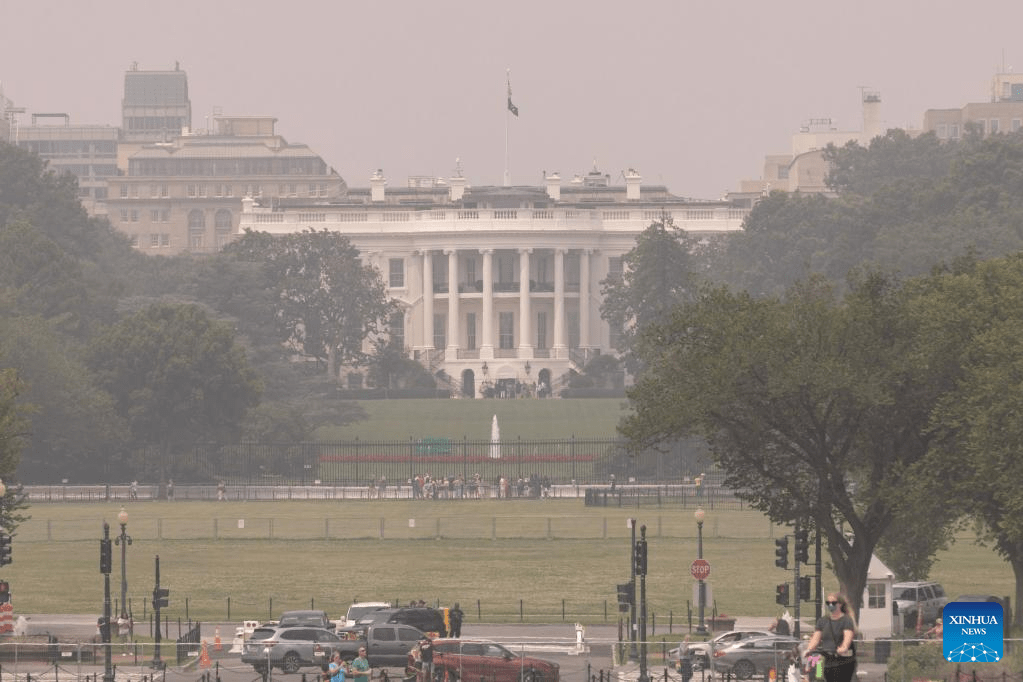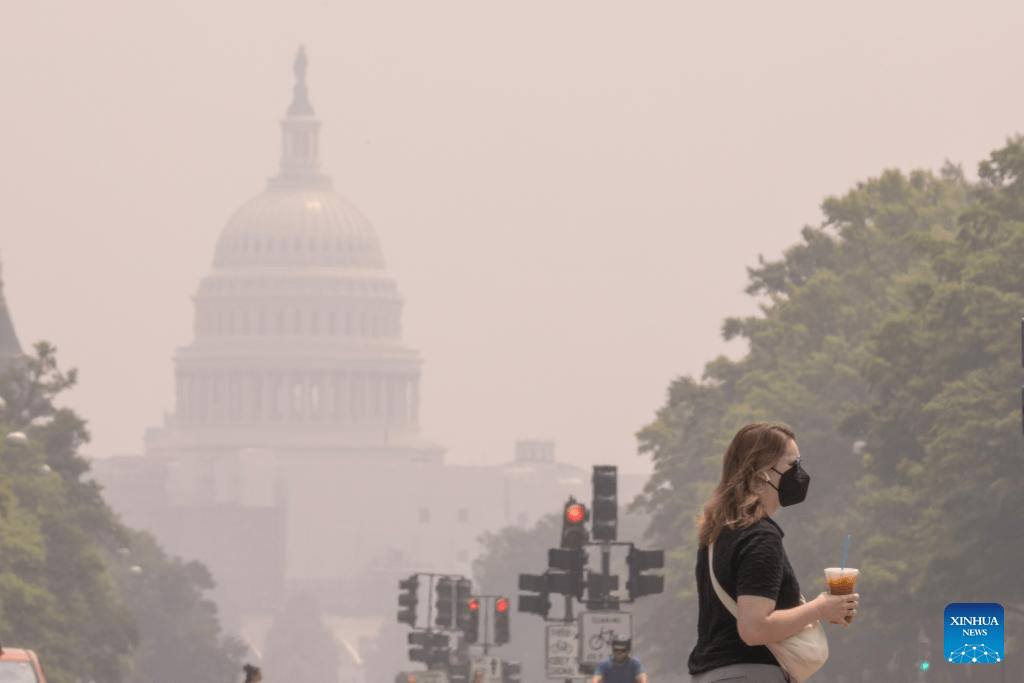Over 120 mln Americans across dozen states under air quality alerts due to Canadian wildfire smoke

LOS ANGELES, June 30: Over 120 million people across more than a dozen U.S. states from the Midwest to the East Coast are under air quality alerts as of Thursday, as smoke from Canadian wildfires continues to sweep across the country.
Canada is seeing its worst fire season on record as hundreds of blazes rage across the country, with more than 250 burning "out of control," according to the Canadian Interagency Forest Fire Centre.
As massive clouds of smoke drift into the United States, air quality alerts have been issued for over a dozen U.S. states including New York, Iowa, Wisconsin, Illinois, Indiana, Michigan, Delaware and Maryland, according to the U.S. National Weather Service (NWS).
As of Thursday morning, Washington, D.C., Chicago and Detroit were among the cities with the worst air quality in the world, according to IQ Air's Air Quality Index.

More than a third of the U.S. population is under air quality alerts, prompting officials to call on the public to take safety precautions just weeks after similar wildfire smoke blanketed the Northeast, said a CNN report.
The NWS has warned that, with no end in sight to the Canadian wildfires, poor air quality is likely to continue.

Officials are concerned that the smoke could hinder travel and lead to flight delays and cancellations for Americans during the July 4 holiday.
Canadian wildfire smoke is causing hazy skies as far away as Europe.
Health officials are urging those in the unhealthy or worse air quality categories to refrain from prolonged or heavy exertion.
Wildfire smoke and ash can irritate eyes, nose, throat and lungs, making people cough or wheeze and can make it hard to breathe, according to the U.S. Centers for Disease Control and Prevention (CDC).
The most effective way to protect from wildfire smoke is to stay indoors or limit time outdoors. This is especially important for those with heart or lung conditions who are at higher risk for adverse health effects, according to the CDC.










Leave Comment